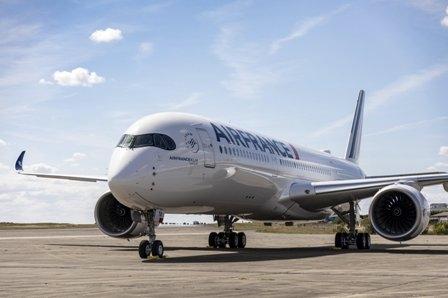Air France-KLM to Buy 10 A350-900s
 Representative image
Representative image
The Air France and Air France-KLM Boards of Directors have reached a decision concerning the replacement of Air France’s Airbus A380s and approved an order of 10 Airbus A350-900s. With this decision, Air France-KLM is pursuing its fleet rationalization and simplification strategy.
KLM is already well on its way to simplifying its long-haul fleet which will ultimately consist of only Boeing 777 and 787 aircraft, sharing a common pilot type rating . At Air France, this upcoming order will bring the total number of A350 aircraft to 38, including three that have already been delivered.
These new-generation aircraft will replace the Airbus A380s currently in operation at Air France and which are to be retired between now and the end of 2022. Their arrival will also allow the company to accelerate the departure of the Airbus A340s during the first quarter of 2021.
The Airbus A350-900 combines economic efficiency and environmental performance, with 25% less fuel consumed compared to previous-generation aircraft, i.e., 2.5 litres per passenger/100km. It also boasts a 40 per cent reduction in noise footprint. The Air France A350-900 is equipped with a spacious and silent cabin, a latest-generation IFE system and Wi-Fi connection for customer comfort.
“The rationalization and modernization of the Air France-KLM fleet is essential to improve its economic and operational performance,” said Benjamin Smith, CEO of Air France-KLM Group. “The result of Airbus’ European expertise, the A350-900 is a high-performing aircraft at every level and I am happy that Air France can make it one of the jewels in its fleet, to enhance our group’s competitiveness."
Anne Rigail, CEO of Air France, said “The first results observed from Air France’s operation of the Airbus A350 are excellent in every way – customer satisfaction, operational performance, and a reduced environmental footprint. With an investment of over one billion euros per year, our fleet modernization is our main lever for meeting our objective to reduce our CO2 emissions by 50% per passenger/km by 2030.”

